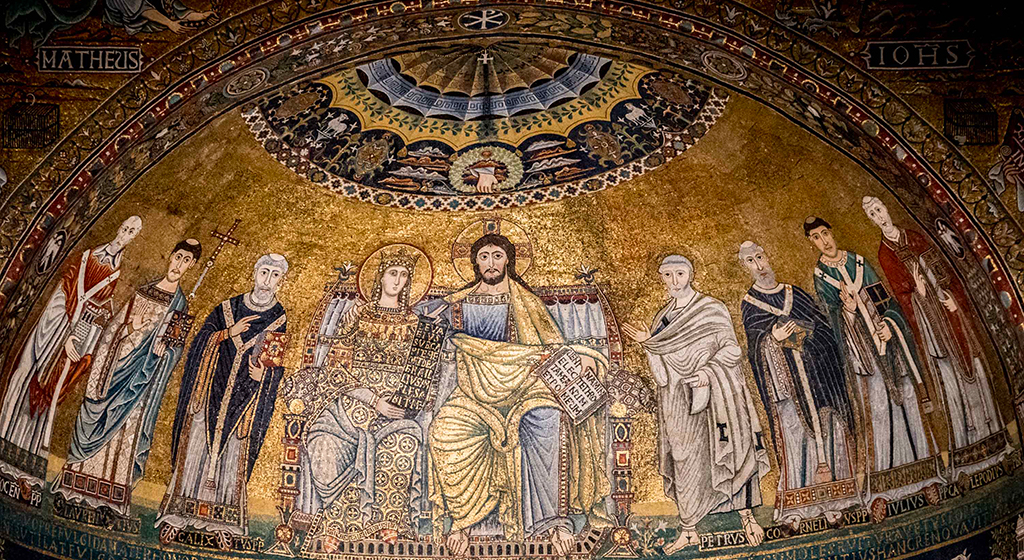Memory of the Church
Reading of the Word of God
Alleluia, alleluia, alleluia
I am the good shepherd,
my sheep listen to my voice,
and they become
one flock and one fold.
.
Alleluia, alleluia, alleluia
Acts 13,13-25
Paul and his companions went by sea from Paphos to Perga in Pamphylia where John left them to go back to Jerusalem. The others carried on from Perga till they reached Antioch in Pisidia. Here they went to synagogue on the Sabbath and took their seats. After the passages from the Law and the Prophets had been read, the presidents of the synagogue sent them a message, 'Brothers, if you would like to address some words of encouragement to the congregation, please do so.' Paul stood up, raised his hand for silence and began to speak: 'Men of Israel, and fearers of God, listen! The God of our nation Israel chose our ancestors and made our people great when they were living in Egypt, a land not their own; then by divine power he led them out and for about forty years took care of them in the desert. When he had destroyed seven nations in Canaan, he put them in possession of their land for about four hundred and fifty years. After this he gave them judges, down to the prophet Samuel. Then they demanded a king, and God gave them Saul son of Kish, a man of the tribe of Benjamin. After forty years, he deposed him and raised up David to be king, whom he attested in these words, "I have found David son of Jesse, a man after my own heart, who will perform my entire will." To keep his promise, God has raised up for Israel one of David's descendants, Jesus, as Saviour, whose coming was heralded by John when he proclaimed a baptism of repentance for the whole people of Israel. Before John ended his course he said, "I am not the one you imagine me to be; there is someone coming after me whose sandal I am not fit to undo."
Alleluia, alleluia, alleluia
I give you a new commandment,
that you love one another.
Alleluia, alleluia, alleluia
The journey of the disciples, or rather, the "journey of the Word of God," continues towards Antioch in Pisidia. It is here, in the vast region called Asia Minor, present-day Turkey, that Paul decides to communicate the Gospel; a choice that causes so much tension that John Mark decides return to Jerusalem. Luke reports this disagreement to suggest the inevitable tensions that arise, even within the community, but which should not stop the missionary drive. Later, Paul will write to the Colossians that John Mark - evidently reconciled with the apostle - rejoined him and assisted him during his imprisonment (Col 4:10). When he arrives in Antioch in Pisidia, Paul again goes to the Jewish community and is invited to speak in their synagogue the next Sabbath. And it is here that the apostle gives his first great speech to the Jews. Luke has already reported the speech made by Peter and the one made later by Stephen. Now it is Paul who is preaching the Gospel to the Jewish world. And he is well aware of the stature of the people of Israel's religious vocation. But he is also aware - from his own personal experience - of how easy it is to be tempted by the pride of belonging, which makes us indifferent to God and his word. Paul listens to the readings from the Law and the Prophets as he had many times in his youth. But this time he listens to them as a disciple of Jesus, after a profound interior transformation. He feels that has a responsibility to offer a commentary on the entire history of the relationship between God and his people from the perspective of the new "Christian" vision that has transformed him so deeply. He addresses his audience with respect: "You Israelites, and others who fear God." The apostle is aware of the gravity of the moment and displays the attitude of someone who has stopped to think about the history that the Lord has lived and continues to live with his people, to show that it had reached its fullness.
